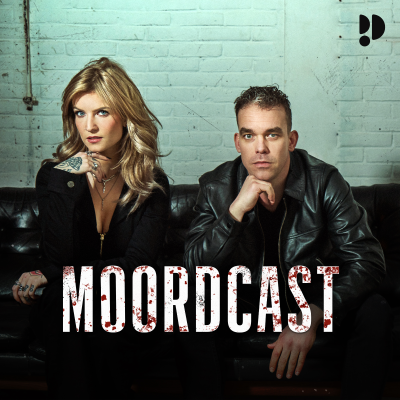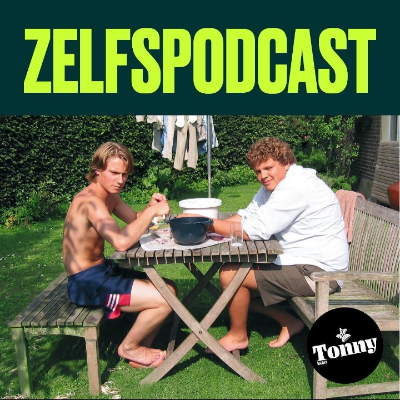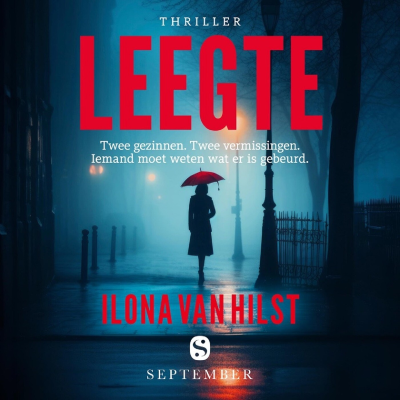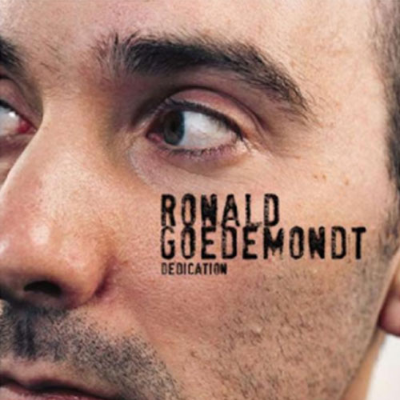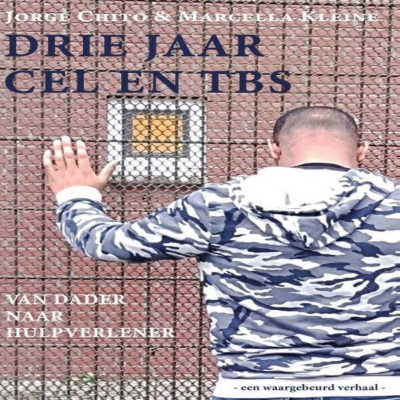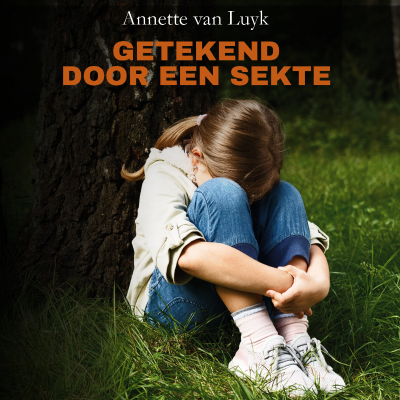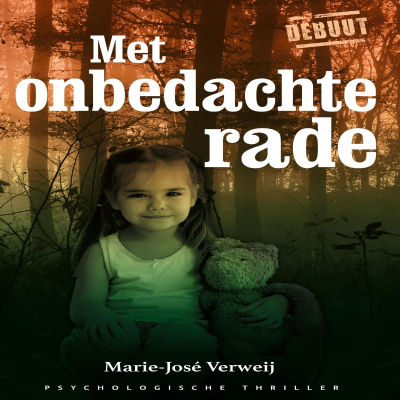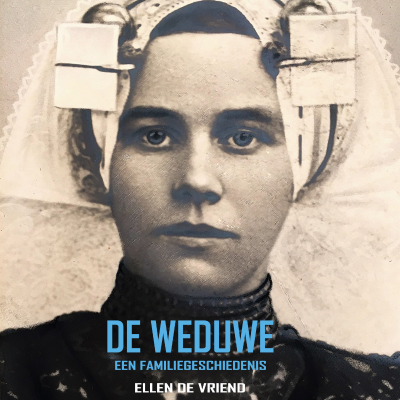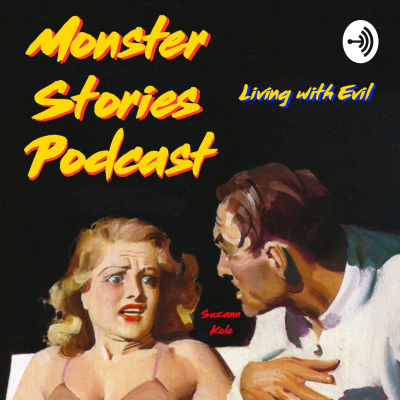
Monster Stories Podcast - Living with Evil
Podcast door Suzanna Beth Kole
Tijdelijke aanbieding
3 maanden voor € 1,00
Daarna € 9,99 / maandElk moment opzegbaar.

Meer dan 1 miljoen luisteraars
Je zult van Podimo houden en je bent niet de enige
Rated 4.7 in the App Store
Over Monster Stories Podcast - Living with Evil
Monster Stories Podcast: Living with Evil, is a series of narratives which convey the intimate experience of being (often captive) in a relationship with a person incapable of humane behavior; a person who derives pleasure from another’s pain. He may be called a beast, a sociopath, a crazed raging monster, a sadistic deceiver, a psychopath. Support this podcast: https://anchor.fm/monsterstoriespodcast/support
Alle afleveringen
18 afleveringenPlease listen to this episode. It is the most difficult set of stories I’ve offered you because of the raw truths and violent moments I’ve heretofore never enunciated. How does the child make it through all the violence and trauma she is subjected to while in the womb? How does she develop in the very early years? Although the entire 22-year marriage to the psychopath, Dr. Mario was replete unspeakable horrors, there were years in each location (New Mexico, Vermont, Peaks Island, Oakland, CA) which were filled particularly grotesque acts of sadism but Dr Mario. You now can hear how “Monster Stories” was coined by Dr. Mario as he spoke and wrote about himself for years. I share parts of myriad recordings and notes on the podcast where he openly identifies himself as a Monster and a, Not a Monster (you already have heard how confused and subhuman these creatures are). What a world it would be if boundaries were enforced between narcissists and non-narcissists/socio/psychopaths, rather than determined by ethnic and religious difference; religion and ethnicity so inconsequential in comparison to the danger of narcissism. Here, I speak of the way narcissism impacted me and my little daughter from the time I found I was pregnant. What is it like to go through a gestational period knowing deafening decibels of violence daily? What might it be like to be felled as an embryo daily on gravel, concrete, hard ground? The pregnancy becomes a battlefield where the mother is in a constant fight or flight mode. She is living on adrenaline (cortisol flowing through her body); trauma is the constancy; melancholia is the atmosphere; the baby grows for nine months on the front lines and is born in the trenches (this trauma applies to a father who has a borderline wife as well). Why doesn’t the mother (OR father) of a narcissistic/psychopath/sociopath/borderline mate simply leave? Does one every simply leave a narcissistic mate? NO.If you’ve been with a narcissist, how many times have you had to respond this ridiculously ignorant question? Think, my listeners: Glen Close in Fatal Attraction, Jack Nicholson in The Shining, The Talented Mr. Ripley(Patricia Highsmith) -- How easy was it for the prey to rid themselves of these superior and practiced narcissists? Not easy is the answer, in case you still were wondering. Reclamation of a life creatively lived after being with a narcissist or in extremis, a psychopath, is a heroic feat (and may positively impact the child who has been indoctrinated into narcissism by the sick parent). Please see www. monsterstoriespodcast.com for further notes and links to books, essays, films that I mention on this podcast. This podcast is a production of Honestly Speaking LLC. Suzann Kole, Ph.D. has worked in academe and the mental health field for over 40 years. She holds a Doctorate in Clinical Psychology and Narrative Studies (an area of linguistics). --- Support this podcast: https://anchor.fm/monsterstoriespodcast/support [https://anchor.fm/monsterstoriespodcast/support]
In this episode we explore how our partner or spouse may be in love with the imagination of us rather than who we really are (and/or, vice versa). We discuss the limitations caused by this phenomenon; how we may have been in this predicament for years and not been able to put it into words; how we may have felt the constraints associated with this condition of merely being the figment of another’s imagination. We explore how this captivity within the imagination of another, is psychology similar to the captor and captive in a relationship that involves a psychopath. This narcissistic trajectory may seem frightening, yet, it is crucial for our (relational) wellbeing to examine this phenomenon in our own lives and intimate relationships in order to identify if we are indeed holding another captive in our imagination, or, if we ourselves, are the captive of another. This discernment helps us understand disgruntlement or limitations we may feel in our intimate relationship, yet, have never spoken of because we lacked the knowledge and language to identify and enunciate the phenomenon. It may have merely presented as frustration, name-calling, feeling controlled, unseen, misunderstood....or, as captor, feeling a loss of control in regard to our spouse; our stated lover. Being held captive within another’s imagination is common. In fact, we’ve all probably done it at one time (some more than others), as well as had it happen to us; that is, having an imagined version of ourselves superimposed onto the depth and breadth of who, in actuality, we are. When this phenomenon exists between two people in an intimate relationship, emotional and physical intimacy wanes or becomes nearly non-existent. Similarly, a desire to learn about the other, fades. A quarrelsome tenor defines the relationship. The person being held captive feels hindered in efforts to explore new areas of living. His spouse demands (however unwittingly or subtly), that he comply with the boundaries of her imagined version of him. If the captor in the scenario, has been relating to others in this manner for a long time, she may be unable to ever discern between the imagined person and the actual one, her partner. The captive feels trapped and bucks against an invisibility he has no words for. The relationship simply feels stultified, and he feelshopeless or, resigned. This phenomenon can go on for years within a marriage. The captive may have succumbed to the imagined version of himself and now, actually plays the role that his spouse has superimposed onto him (and expects of him), while harboring a grudge, or great melancholia in regard to the relationship. The captor has little interest in the captive expressing concern regarding his frustration. An estrangement forms between the lovers. All efforts to explore new territory (e.g.: a new profession, a renewed creative expression, interest in new foods, people, and travel), may seen as threats by the captor who has a stake in maintaining a status quo, her imagined other behaving in the expected manner. Hence, the captive is thwarted in his efforts to fulfill certain desires and longings in life. The captive feels profoundly misunderstood or unrecognized, and, in fact, is. Please visit www.monsterstoriespodcast.com for further notes, links, and contact information. Thank you. This podcast is a production of Honestly Speaking LLC. Suzann Kole, Ph.D. has worked in academe and the mental health field for over 40 years. She holds a Doctorate in Clinical Psychology and Narrative Studies (an area of linguistics). --- Support this podcast: https://anchor.fm/monsterstoriespodcast/support [https://anchor.fm/monsterstoriespodcast/support]
In this episode we explore some of the faces of captivity: What are some of the psychological dynamics between captor and captive? What do these experiences look like for the “average” (?!) person being held in captivity by a psychopath? The personal experiences of captivity as seen outside of the extreme situations reported in the news and made into films, may look a lot different yet, bespeak the same psychological dynamics. We look at how the entire concept of captivity has been so commodified and sexualized, that it has occluded, hence de-emphasized the importance of scrutinizing this perverse and dangerous psychological phenomenon which has been occurring for time immemorial. I make references to John Fowles book, The Collector, which most of us had to read in 10th grade when it probably made little sense. With the decline of interest in literature, people are less able to reference psychological dynamics in books, which really are the only references that accurately develop characters and traits which describe psychological malaise. Manuals such as the DSM with its lists of symptoms and brief multiple-choice characteristics, make little sense when attempting to look at Character-Disordered people/creatures such as socio/psychopaths, or antisocial and borderline characters. I’ve referenced some films this week which may help explore the various dimensions of captivity. The Shining (Jack Nicolson), The Experiment (Adrien Brody/Forest Whitaker), Fallen (Denzel Washington), all disturbing, somewhat sensationalized, and abstract, nevertheless, accurately portray psychological dimensions of the psychology of captivity. I offer a number of abbreviated vignettes which were part of my own captivity, but I chose them because these traumatic and monstrous experiences are often universal to someone who has been with a psychopath either in a long- or shorter-term relationship. How does being held captive affect the nervous system and the brain’s amygdala function? How can the psychopath maintain captivity when his or her prey is at a distance? How does the violent raging of a psychopath affect a child who is part of the union? Please listen to this episode to learn more. And visit the website for links, additional notes, and contact information, www.monsterstoriespodcast.com. Thank you for listening. This podcast is a production of Honestly Speaking LLC. Suzann Kole, Ph.D. has worked in academe and the mental health field for over 40 years. She holds a Doctorate in Clinical Psychology and Narrative Studies (an area of linguistics). --- Support this podcast: https://anchor.fm/monsterstoriespodcast/support [https://anchor.fm/monsterstoriespodcast/support]
Psychopaths, Captivity and Aphrodisiacs or, “Let Me See You Beg, Honey" Welcome back to Monster Stories Podcast, Living with Evil after a brief absence during which your host took a historic tour of northern New Mexico, visiting the offices where Dr. Mario was hired into our group practice, as well as the homes where Dr. Mario first began to groom the host for a life of captivity; the house where first he began kidnapping his then, daughter (from a prior marriage). This, a trip both unnerving and reifying. How necessary it is sometime to see a place of horror with renewed vigor. (We hear yet another simulated apology by Dr. Mario at the beginning of the podcast) The interlude this week is some of the “keening” done by your host while she is managing to survive the horrendous trauma occurring while being held by her captor. In this episode we continue our discussion of captivity… how it occurs, the dynamic between the psychopathic captor and his captive. We speak of the erroneous portrayal of the psychopath as sexual predator and look at what his actual aphrodisiac of choice is. Furthermore, we speak of how the “psychopath as superior lover” is also a misnomer. If not superior, what kind of lover is he? Can a person devoid of sensate capacities be a “lover”? Is the psychopath able to perform sexually, if so, under what conditions? What really does arouse the psychopath? What is Captivity and how does a psychopath accomplish it? Why are others so unable to see a captive and notice how s/he’s suffering? Why are people so unwilling to believe in the pathological paradigm of psychopathic captor and captive? How is this pathological dynamic maintained in secrecy and when does it begin to be exposed? Gaslighting is a tool for maintaining captivity. The more the captive doubts herself the more removed she becomes from a reality check as it were. S/he is moving about her life and career burdened with various physical and psychological traumas inflicted on her by the psychopath, while also being told that she is not doing enough; that she is not strong enough; that she is not enduring enough. The captive may be a person who has often felt to be not enough throughout her life, hence the psychopath is able to capitalize on this predisposition as he insinuates himself into her psychological state. Similarly, friends, colleagues, neighbors, family surrounding the captor and captive are indoctrinated into a brainwashing that the psychopath is always manufacturing in order to protect his image, his veneer, his mask of sanity. He is pointing at his prey and speaking of how he or she is ill; exposing her idiosyncrasies; creating plausible tales about her as the captive become increasingly isolated within shame, a confused identity and melancholia. Pease visit www.monsterstories.com [http://www.monsterstories.com/] for further notes, and links to books and films mentioned in this episode, as well as contact information. This podcast is a production of Honestly Speaking LLC. Suzann Kole, Ph.D. has worked in academe and the mental health field for over 40 years. She holds a Doctorate in Clinical Psychology and Narrative Studies (an area of linguistics). --- Support this podcast: https://anchor.fm/monsterstoriespodcast/support [https://anchor.fm/monsterstoriespodcast/support]
This season opens with a few stumbling words introducing the psychology of captivity. In subsequent episodes we will continue to explore this topic which is rarely spoken of. Why do we not hear the voices of the escaped captives more frequently? …Because the majority of captives are never released by their psychopathic captors. Many captives die from bodily harm inflicted upon them by their captors. Many take their own lives to liberate themselves from a situation which seems to afford no exit. Others are left in a severely traumatized state and have no desire to remember the horrific period of captivity. Shame is another muting feature--there is a tremendous amount of shame associated with this topic, captivity, especially for professionals, yet, professional people are the main targets of the psychopath. The psychopath looks for people who will serve him. This utility-value in others is his only interest in assessing them for a relationship of any kind. Professionals serve the psychopathic captor with their money and status. Being with a professional, or so the psychopath reasons, helps him maintain the appearanceof normalcy. Please return for further notes dispelling the erroneous notions of the Stockholm Syndrome, the enabler, and the psychopathic sexual predator (ha!). The hostage never becomes inured to captivity or pain, contrary to pop-culture psychology; s/he never learns to care deeply, compassionately, or sexually for the captor. Rather, she learns how to play the game that s/he feels will keep her alive. She placates the captor by pretending to speak with him as though they were in a normal relationship; as though she were not being held captive. She is aware of his delusional world and plays the part she feels may be to her best advantage in terms of avoiding more serious injury; more punishments; continued captivity; death. The Psychopath has no capacity for sexual feelings. His interest is in power. He is only aroused by pain and suffering in others, hence he has a penchant for necrophilia. (more notes shortly...and tune into subsequent episodes) The medical profession commodifies psychopaths and their captives. The titillation-value appears to be the greatest money-maker, hence, harmful psychological/psychiatric assumptions are made from cursory knowledge. For example, “scientific observations” from afar, utilize fragments of information shoddily gathered from random survivors of captivity to create terms such as the Stockholm syndrome (coined in the 1970s re: Patty Hearst). This term, although not accepted by the rare thoughtful psychologist/psychiatrist, is a widely held pop-psychological colloquialism suggesting that a hostage learns to feel deeply for his or her captor. The meaning also extends to sexual fantasies suggesting that the captive actually enjoys the bondage she is held in by a psychopath. How sickening it is when lawyers and others have assaulted me with such facile musings. Some male listeners of this podcast have also asked to meet me, only to raise the question of my sexual appetite for pain, “Come on now, didn’t you enjoy it just a little???”. (see more notes www.monsterstoriespodcast.com) This podcast is a production of Honestly Speaking LLC. Suzann Kole, Ph.D. has worked in academe and the mental health field for over 40 years. She holds a Doctorate in Clinical Psychology and Narrative Studies (an area of linguistics). --- Support this podcast: https://anchor.fm/monsterstoriespodcast/support [https://anchor.fm/monsterstoriespodcast/support]

Rated 4.7 in the App Store
Tijdelijke aanbieding
3 maanden voor € 1,00
Daarna € 9,99 / maandElk moment opzegbaar.
Exclusieve podcasts
Advertentievrij
Gratis podcasts
Luisterboeken
20 uur / maand


